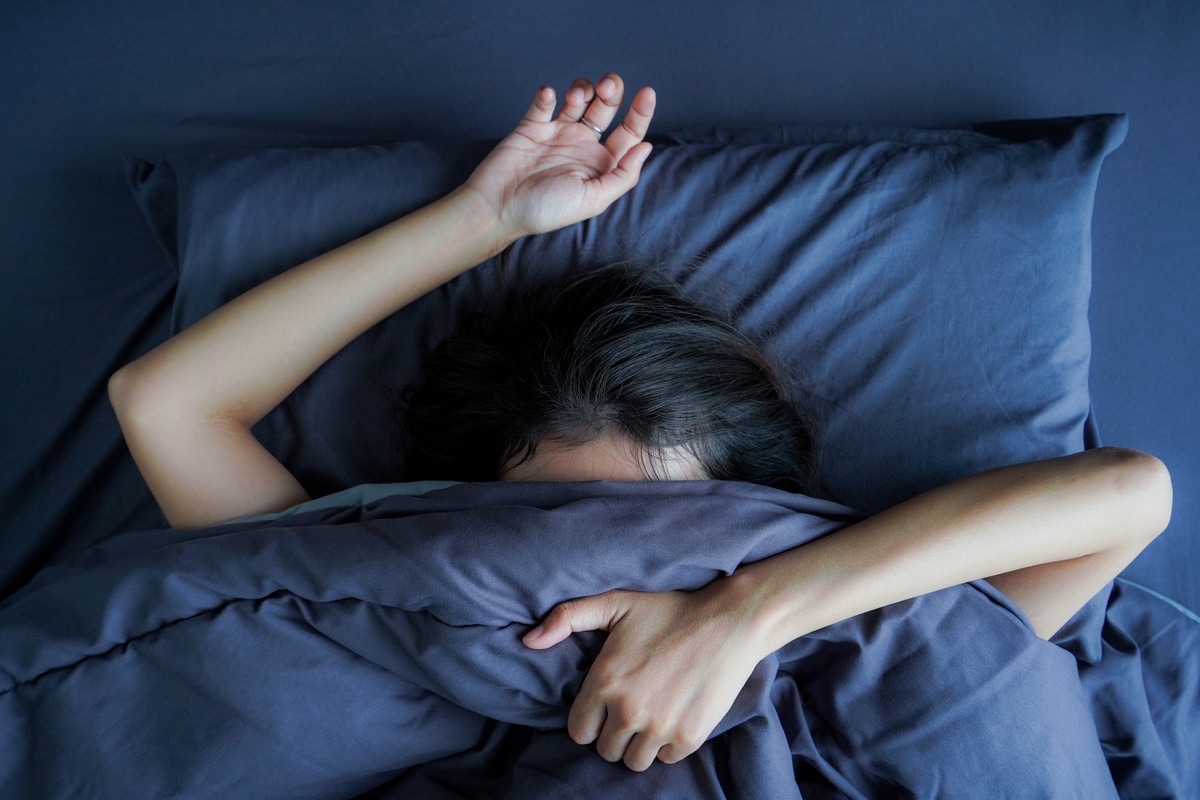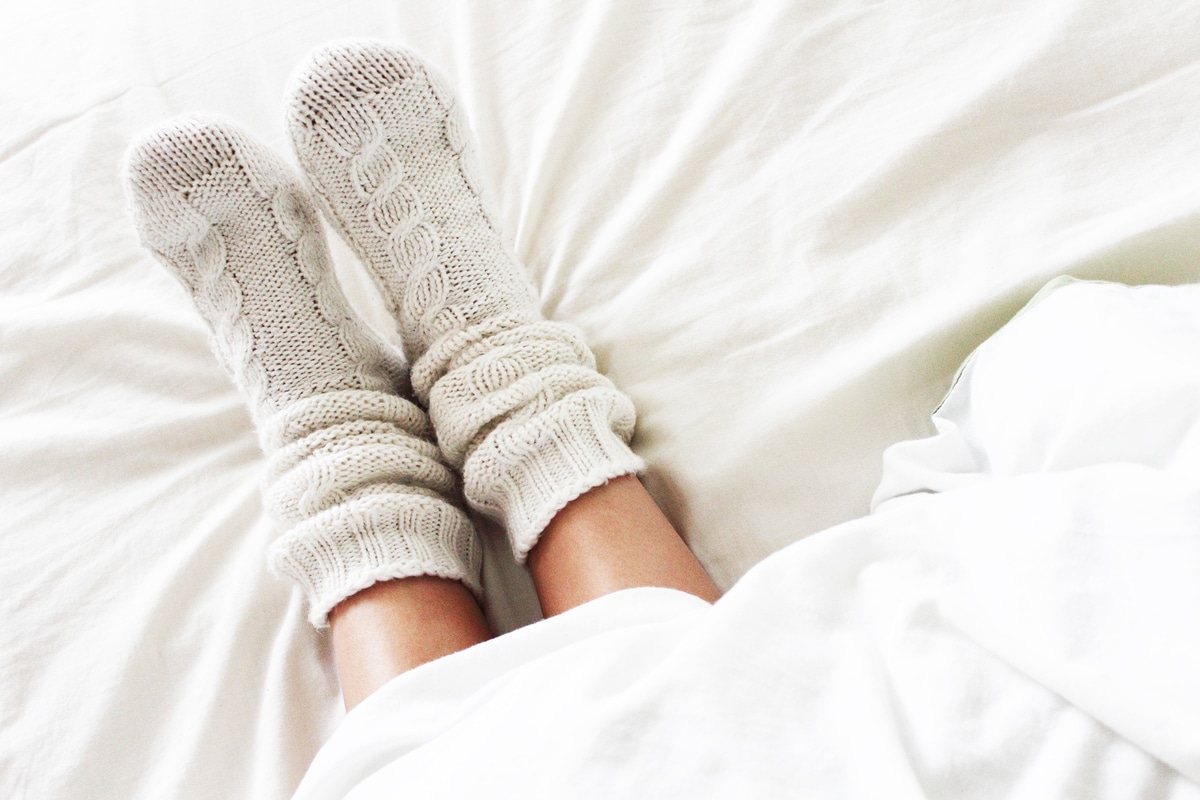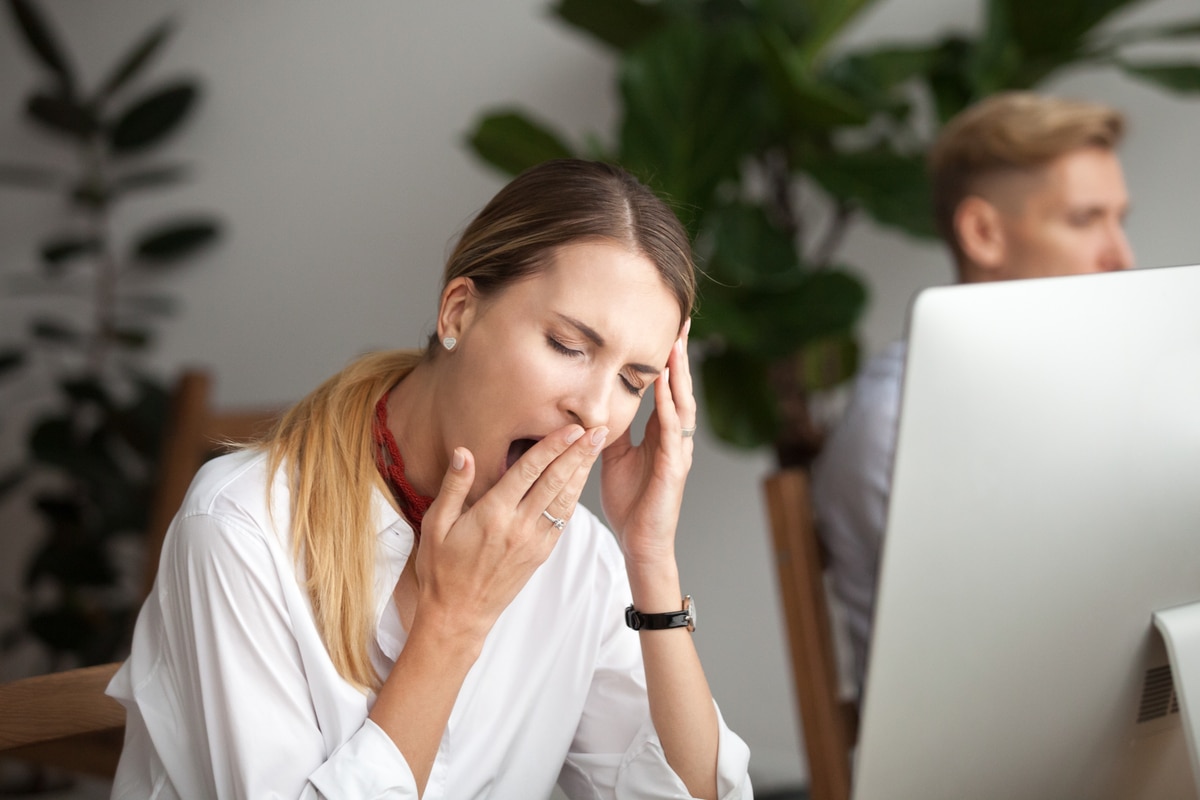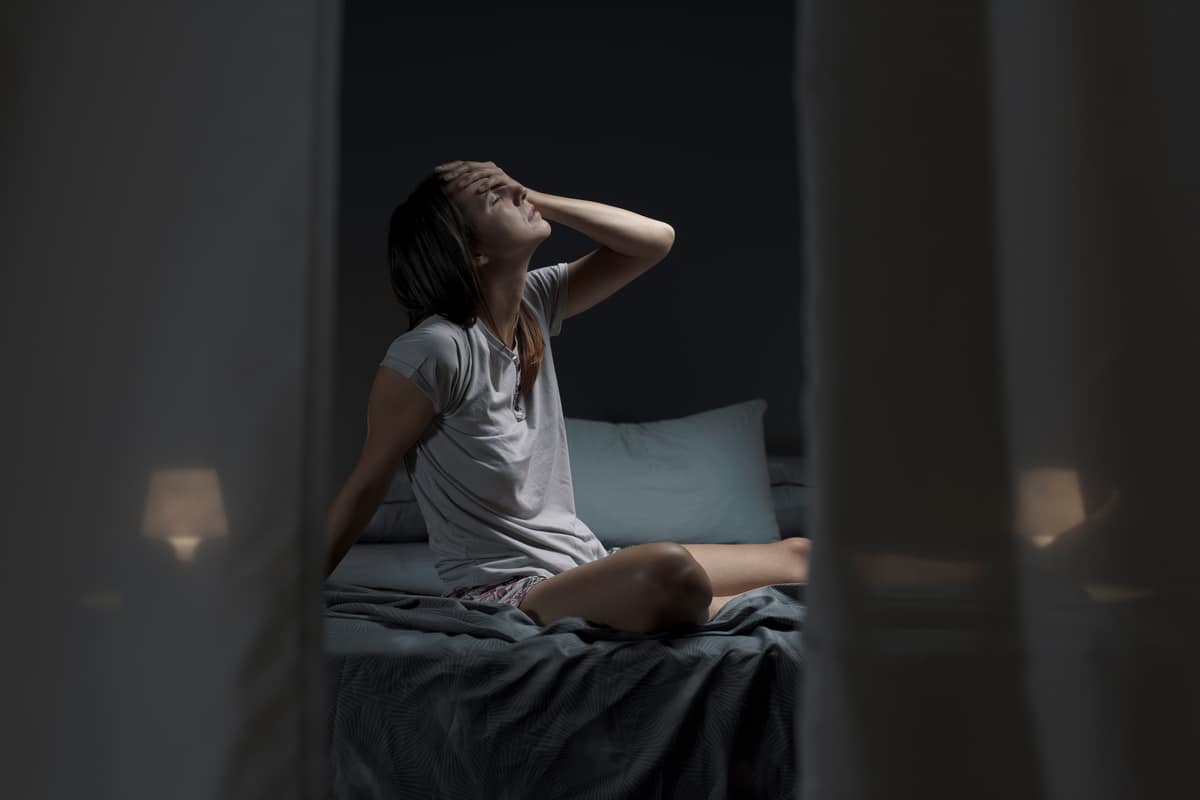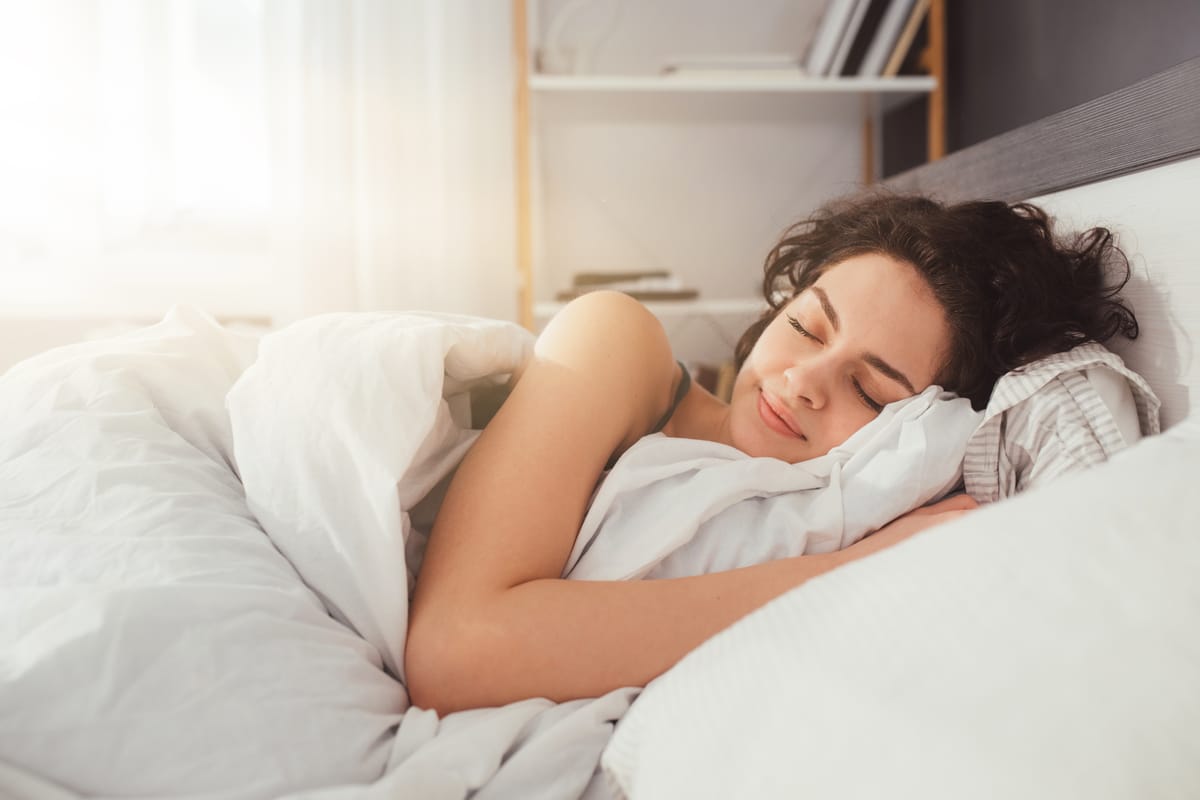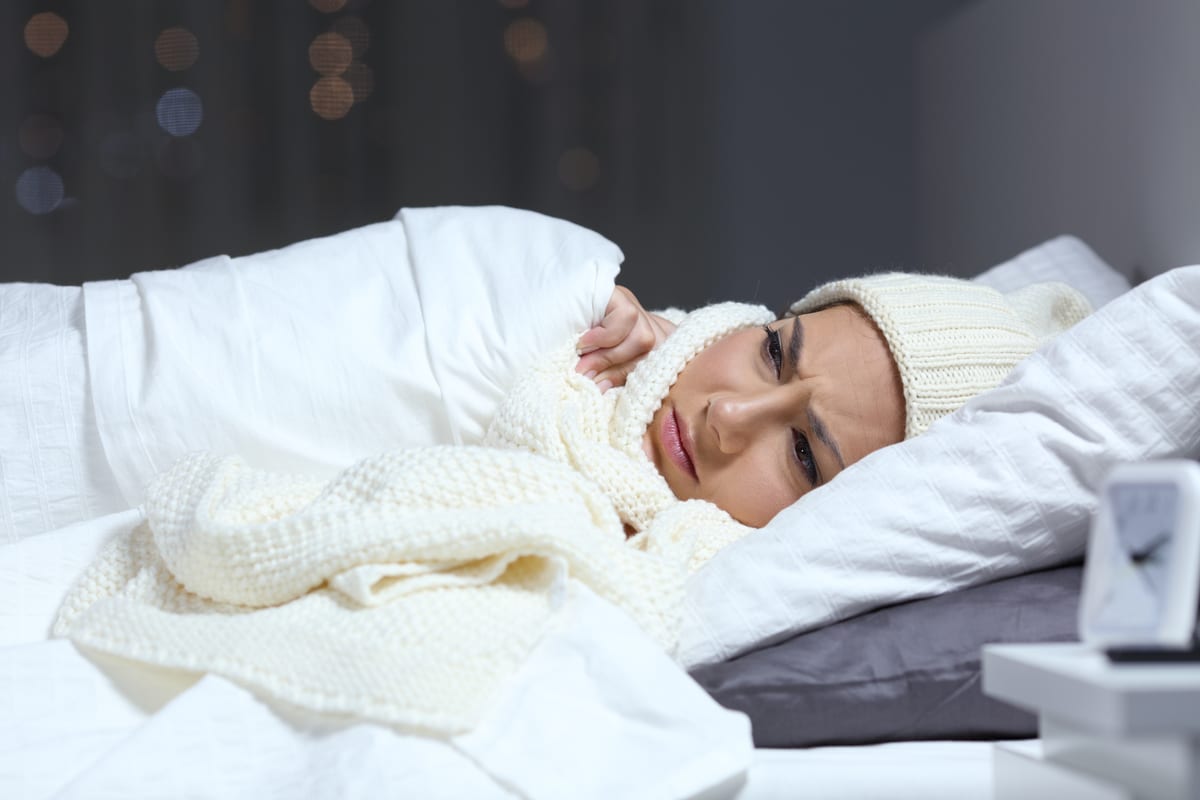
Does the sound of your partner’s key in the door as they come home wake you?
What about the pads of your dog’s feet on the floor as he goes to get a midnight drink?
Or maybe it was the flashing lights of a passing car in your window?
If these scenarios sound familiar, chances are you’re a light sleeper.
Waking during the night is very common, and we can experience up to 20 wakings per hour. The difference here is that most go unnoticed as we go in and out of REM sleep. Some conscious wakings are normal too; most people experience 2-3 a night.
However, if you’re experiencing more than 2-3 conscious wakings a night and struggle to go back to sleep, you are likely a light sleeper.
But are there any tips and tricks that may improve your sleep quality? Or can you stop being a light sleeper?
What Causes Light Sleeping?
Sleep quality is vital to your well-being. This means light sleeping may not just be annoying, but impacting your health.
Researchers aren’t quite sure what causes light sleeping, but it may be due to a number of reasons. Poor sleep hygiene, lifestyle habits, sleep disorders, genetics, mental health issues, and age can all affect your sleep.
Is Poor Mental Health Making You a Light Sleeper?
Your mental health and your sleep have more in common than you might think. Depression, ADHD, anxiety, and bipolar disorder are particularly linked to poor sleep.
Unfortunately, poor sleep creates a vicious cycle that can wreak havoc on our mental health. Poor mental health may be causing you to wake in the first place, and then that lack of sleep further aggravates the condition.
It’s important to do everything possible to facilitate good mental health. Speaking with a therapist, taking prescribed medication, decreasing the stress in your life, and making healthy choices may all help you to sleep deeper.
Ruling Out Sleep Disorders
It’s important to make sure your light sleeping isn’t due to an underlying medical condition, such as a sleep disorder. Talk to your doctor if you feel you may be suffering from the following disorders:
Sleep apnea is a disorder that causes frequent night wakings that cause you to choke or gasp for air. Sleep Apnea occurs when there is a blockage in the upper airway. Common symptoms include loud snoring and excessive daytime sleepiness.
Restless leg syndrome is a disorder characterized by different types of sensations in the legs. This can lead to frequent nighttime wakings from pain, itchiness, or throbbing in the legs.
Sleep maintenance insomnia is a condition where one struggles to remain asleep or wakes up earlier than intended and can’t fall back asleep. This disorder affects up to one in five people.
How To Improve Sleep Quality When You’re A Light Sleeper
Unfortunately, some factors that affect sleep, such as age and genetics, can only be helped with the guidance of a doctor.
However, there are many changes you can make today that might be your ticket to a good night’s sleep! Let’s take a look at how to create the best possible environment conducive to a good night’s sleep.
Lifestyle Habits
It’s important to implement good habits, not just the hour before you go to sleep, but all day long.
Try to limit your daily caffeine intake, especially 4-6 hours before bed. Caffeine is a stimulant and may be preventing your body from relaxing into a deep sleep.
Nicotine, another stimulant, may make you feel relaxed, but will not be doing you any favours when trying to fall asleep. Once nicotine enters your bloodstream it will stay there for up to 3 days.
Alcohol, a depressant, may assist you in falling asleep. However, there is evidence that consuming alcohol before bed may cause you to wake more frequently throughout the night.
Limit eating before bed. If you eat a heavy meal and then fall asleep, your digestive system may awaken you as it works to break down food. When you fall asleep, your blood pressure slows, allowing your body to relax. When your body tries to digest a large meal in this state, it can put a strain on your heart.
Are you exercising enough? Research has shown that exercise improves slow-wave sleep, or deep sleep. It’s also been shown to reduce stress, which may be affecting your sleep as well.
Overwhelmed with an already busy day? There’s good news. Research has shown that just 30 minutes of exercise a day can have an immeasurable effect on our health, including sleep health. There is still some debate on when you should exercise for optimal sleep. Some people avoid exercise in the evening while others claim it’s key for their quality of sleep.
Proper Sleep Hygiene
What is sleep hygiene? Proper sleep hygiene is creating a routine and environment that is optimal for sleep.
Create a dark place. Treat your bedroom like the sanctuary it should be! Invest in some blackout curtains to keep all pesky light sources out. If a flickering street lamp is driving you crazy at night, blackout curtains will be a welcome addition to your sleep hygiene.
Additionally, if car headlights or early morning light are waking you up, this is a must!
Make sure your room is at a comfortable temperature. How many times have you woken up due to it being too hot or cold? Selecting the right blankets and duvet is wise.
Different types of duvets are available, thicker for winter and thinner in summer. Experts say a cooler rather than warmer environment is optimal for sleeping which is another case for ordering those blackout curtains – they are known to cool the room.
Limit distractions. Ideally, your phone should be turned off at night to limit noise, light, and the distractions it causes. An even better way to practice sleep hygiene is to stop using your phone an hour before bed. Allow your brain to enter into a restful state free of texts, emails, and social media.
Resist the temptation of scrolling on your phone if you find you can’t get back to sleep. The blue light of your phone or tablet will further wake and stimulate your brain.
The bed is only for sleeping. Create a rule that no eating, work, or homework be done in the bed. Frequent wakings in the night could be due to you remembering an assignment or even the smell of snacks you left on your nightstand.
Remember, your bedroom is a sanctuary. Train your brain to only correlate your pillow with sleeping.
Create An Optimal Sleep Routine
Prioritize sleep, and set a strict bedtime. Remember, sleep is vital to your health. Forgo another episode of your favourite show on Netflix and train your brain to get into the habit of going to bed at a certain time.
The same is true for the mornings! Try to set a consistent wake-up time on both weekdays and weekends. Your body will acclimate to the routine and get into a consistent sleep rhythm.
How Can I Get Back to Sleep?
Struggling to fall back asleep after being awoken can be frustrating. Here are some tips to try the next time you find yourself tossing and turning.
- Visit the bathroom. Yes, really! A full bladder is uncomfortable and may be preventing you from a restful sleep.
- Relax. Easier said than done, right? Practice progressive muscle relaxation, a form of mindfulness. Start with your facial muscles and work your way down your body, clenching each one while taking deep breaths. Yoga and meditation can be helpful as well.
- Resist the temptation to turn on the TV or look at your phone. The glow of a screen will only further stimulate your mind.
- Avoid daytime naps. Although tempting, healthy adults do not need an afternoon nap. In fact, this may hinder your ability to achieve deep sleep at night.
- Think positive thoughts. Nothing keeps sleep out of reach like worrying! Work on controlling the flow of thoughts that enter your mind while remaining positive.
The Bottom Line
The good news?
There’s a light at the end of the tunnel for light sleepers.
It may be as simple as making a few adjustments to your routine, such as improving your sleep hygiene. Perhaps there are too many distractions competing for attention right before bed, or you drink coffee too late in the evening. Health issues like apnea and restless leg syndrome are treatable, if not curable.
Avoid pitfalls that cause frequent wakings at night and prioritize your sleep.
Work on improving lifestyle choices and create an environment that is optimal for sleeping.
Do your best to remove as much stress from your life as possible. Incorporate regular exercise into your daily routine. The key here is to analyze your lifestyle and pinpoint areas where you can make improvements to remedy light sleeping.
Remember, prioritizing your sleep is prioritizing your health.


